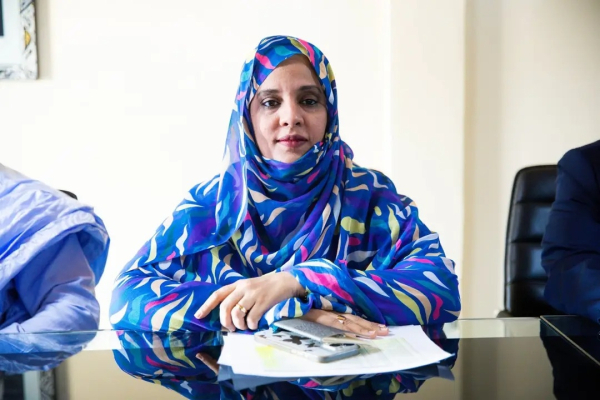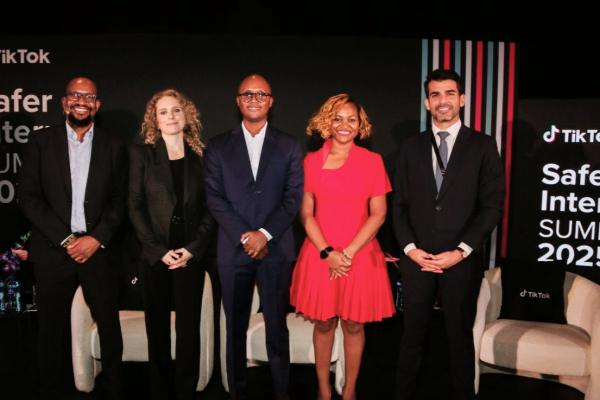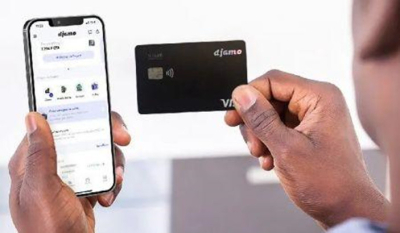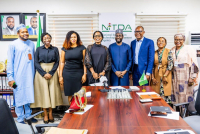Face aux défis de la modernisation, de nombreux pays misent sur la transformation numérique pour améliorer l’accès aux services publics. La numérisation des documents officiels, notamment les diplômes, devient une priorité pour renforcer l’efficacité administrative.
Mauritania's government is developing a digital diploma system to modernize issuance and enhance authenticity.
The project's framework was discussed at an April 2 meeting at the Ministry of National Education and Education System Reform, chaired by Minister Houda Mint Babah, and attended by Digital Transformation Minister Ahmed Salem Bede. The system aims to directly link diplomas to the civil registry, ensuring traceability and simplifying citizen access.
Graduates will be able to retrieve certified diplomas via the "Houwiyeti" (My Identity) app, a digital platform for public services already used for birth certificates and passports. The app will streamline access to diplomas, particularly baccalaureate and preparatory education certificates, reducing administrative burdens.
This initiative is part of a broader government digital transformation program. Last year, Mauritania announced a $30 million investment to modernize digital infrastructure and develop public service solutions. However, Mauritania lags in digital administration. In 2024, it ranked 165th globally on the United Nations e-Government Development Index, with a score of 0.3491 out of 1, below the African average of 0.4247 and the global average of 0.6382.
By integrating diplomas into its digital registry, the government aims to simplify access to official documents, combat forgery, and enhance certification reliability. This digital shift is crucial for improving transparency, increasing administrative efficiency, and facilitating graduate integration into the national and international labor markets.
- TikTok removed 8 million videos in Sub-Saharan Africa in Q4 2024
- In North Africa, 7 million videos were taken down in the second half of 2024
TikTok removed eight million videos in Sub-Saharan Africa during the fourth quarter of 2024 for violating community guidelines, up from 7.5 million in the previous quarter, the company announced. In North Africa, seven million videos were taken down in the second half of 2024.
The increased removals reflect heightened moderation efforts across the continent, where several countries have criticized the platform for inadequate content control.
The figures were disclosed at the second annual African Summit for a Safer Internet, held last week in Cape Town, South Africa, which convened government officials, regulators, and industry stakeholders from South Africa, Nigeria, Ethiopia, Cameroon, Côte d’Ivoire, and Kenya. Discussions centered on online safety, content moderation, and the development of Africa-specific digital policies.
"Billions of people come to TikTok every day to create, share and connect and we're continually evolving our policies and practices to safeguard our platform so our community can discover and do what they love," said Helena Lersch, TikTok's Vice President of Public Policy.
Several African nations have recently taken action against TikTok. Senegal blocked the platform in August 2023, citing its role in disseminating hateful and subversive messages that threatened national stability. Before service restoration in February 2024, the government demanded assurances on moderating content deemed contrary to national values and public morals.
Somalia suspended TikTok in August 2023, alleging its use for distributing violent content and disinformation. South Sudan suspended the platform for a week in January 2025 following the circulation of graphic videos showing violence against South Sudanese nationals in Sudan. "The rise in violence linked to social media content in South Sudan underscores the need for a balanced approach that addresses the root causes of online incitement while protecting the rights of the population," said Napoleon Adok Gai, Director General of the South Sudanese Communications Authority.
In Kenya, during April 2024 parliamentary debates over a proposal to suspend TikTok for alleged propaganda, fraud, and sexually explicit content, the government opted for a co-regulation model. Similar regulatory discussions have occurred in Morocco, the Democratic Republic of Congo (DRC), and Burkina Faso.
Despite the increased moderation and video removals, concerns persist about the effectiveness of TikTok's measures. A BBC investigation published March 3, 2024, revealed serious abuses, including young users' exposure to explicit sexual content, from which the platform allegedly indirectly profits. A July 2024 report by the Mozilla Foundation and AI Forensics highlighted security flaws in TikTok Lite, used in developing countries, that facilitate the spread of inappropriate content.
By Isaac K. Kassouwi,
Editing by Sèna D. B. de Sodji
As fintech adoption continues to grow, companies like Djamo could be instrumental in helping millions transition from cash-based economies to fully digital financial systems, unlocking new economic opportunities and driving financial empowerment across the region.
Ivorian fintech Djamo has secured $17 million in funding to accelerate its expansion across Francophone West Africa. The digital banking platform, which serves over one million customers in Ivory Coast and Senegal, aims to bridge the financial access gap by providing affordable and accessible banking services.
The equity round was led by pan-African, gender-focused VC Janngo Capital, with participation from SANAD Fund for MSMEs, Partech, Oikocredit, Enza Capital, and Y Combinator. The new funding surpasses Djamo’s $14 million Series A in 2022 and signals growing investor confidence in its mission.
Djamo positions itself between mobile money and traditional banks, offering a digital-first banking experience with the flexibility of mobile money but the financial depth of a full bank account. The startup has introduced savings vaults, investment products, salary-linked accounts, and merchant payment tools, strengthening its value proposition.
With its latest funding, Djamo aims to strengthen its footprint in Senegal and expand across other Francophone African countries. As of 2021, 56% of adults in Senegal had an account, exceeding the Sub-Saharan African average of 49%, according to the World Bank. However, the majority (28%) held only mobile money accounts, which lacks advanced financial tools like credit and investments, highlighting the need for more comprehensive financial services.
Djamo’s expansion into Senegal and other Francophone African markets could significantly boost financial inclusion by bridging the gap between mobile money and traditional banking. By offering accessible banking services, Djamo can help transition mobile money users to a more comprehensive financial system, fostering economic empowerment, savings culture, and business growth in the region.
Hikmatu Bilali
Global development by 2050 requires combating global warming, a challenge that necessitates strong private sector involvement, especially from startups, alongside political action.
Tunisian startup MEPS (Methane Energy Production Solutions) secured second place at the Orange Summer Challenge (OSC) International 2024 with its intelligent, mobile, and autonomous biodigester, a technology designed to transform organic waste into biogas and natural fertilizer, reducing treatment costs and environmental impact. The innovation is spearheaded by Khouloud Ayachi, pictured, and her team.
Two years ago, Ayachi, whose family background includes farming and livestock breeding in Bargou, witnessed the economic hardship forcing her uncle and neighbors to sell their herds. This prompted her to develop a solution enabling farmers and breeders to sustain their livelihoods while generating added value. Drawing on her 2022 professional Master's degree in Environment and Physico-chemical Analysis of Industrial Soils from the Faculty of Sciences of Monastir, she launched the MEPS project.
The biodigester operates through a simple process: organic waste is introduced and "naturally transforms to produce biogas and biofertilizer." The biogas is stored for use in cooking, water heating, or powering agricultural equipment, while the biofertilizer is used to enrich soil, replacing chemical alternatives. Users can monitor biogas and fertilizer production via a mobile application and receive resource optimization advice. A chatbot provides on-demand assistance, and the system includes safety mechanisms to prevent gas leaks and flame hazards, Ayachi explained.
Developing the MEPS biodigester presented significant challenges, including financial constraints and the integration of complex safety features. With support from the Orange Summer Challenge, specifically through the École du Code and Fablab Solidaire, the team developed a high-performance prototype. They are now seeking funding to refine the solution and finalize a safer, more efficient product. "These experiences taught us the importance of innovation, collaboration, and perseverance. Thanks to our partners' commitment, MEPS is on track to become a comprehensive solution," said Ayachi, MEPS founder and CEO.
While initially targeting farmers and breeders, MEPS envisions expanding its technology to revolutionize organic waste management and reduce CO₂ emissions in the restaurant, hospitality, and industrial sectors, as well as for domestic use, in Tunisia and beyond. This ambition is fueled by the growing African and global greentech sector. "Demand for innovative and sustainable solutions is increasing. Businesses and consumers are more aware of environmental impact, and many industries are seeking alternatives to reduce their carbon footprint. We see this shift as an opportunity to diversify our solutions and meet a range of needs," Ayachi said.
Following their OSC International 2024 success, MEPS is preparing for real-world testing to ensure the biodigester meets user needs. Concurrently, a continuous improvement process will optimize the technology, business model, and services before scaling up. The goal is to establish a sustainable company capable of addressing future environmental and economic challenges.
Muriel EDJO
The expansion of digital infrastructure is a key driver of economic growth in Africa, where demand for cloud computing, AI, and digital financial services is rising rapidly.
Raxio Group, a data center platform in Sub-Saharan Africa, announced today April 3rd that it has secured $100 million in financing from the International Finance Corporation (IFC), a member of the World Bank Group. The funding will support Raxio’s expansion of AI, cloud computing, and digital financial services, which are critical to Africa’s economic growth and digital inclusion.
“This funding from IFC is a powerful endorsement of Raxio’s vision,” said Robert Skjødt, CEO of Raxio Group. “It allows us to bring critical infrastructure to the regions that need it most and attract further investment as we continue to grow.”
The investment will enable Raxio to double its deployment of high-quality colocation data centers within three years, addressing increasing demand in underserved markets. The company is currently developing a regional data center network in Ethiopia, Mozambique, the Democratic Republic of Congo, Côte d’Ivoire, Tanzania, and Angola.
Raxio aims to fill infrastructure gaps by introducing Tier III-certified, carrier-neutral, and secure data centers in key African markets. These facilities will enhance connectivity, boost cloud adoption, and attract more investment in the digital economy.
Raxio’s data centers are designed for 24/7 reliability and incorporate renewable energy solutions to reduce environmental impact. The company utilizes energy-efficient equipment to minimize electricity and water consumption, ensuring sustainable digital growth in Africa.
The financing from IFC builds on earlier debt funding from Proparco and the Emerging Africa Asia Infrastructure Fund (EAAIF), alongside equity investments from Roha Group and Meridiam. The funding also includes concessional financing from the GROW Facility (which promotes gender equity and inclusive economic growth) and the IDA Private Sector Window, which supports private investment in fragile markets.
Data centers play a crucial role in Africa's digital transformation by serving as the backbone for data storage, processing, and transmission. According to the "Africa Data Center Market Size – Industry Report on Share, Growth Trends & Forecasts Analysis Up to 2029" by Mordor Intelligence, the African data center market is expected to expand at a compound annual growth rate (CAGR) of 12.34% between 2024 and 2029. This growth is driven by rising digitalization, increasing demand for cloud services, and the rapid expansion of data center infrastructure across the continent.
Hikmatu Bilali
Developed by a trio of tech entrepreneurs, the digital platform aims to streamline CV and cover letter creation, along with interview preparation.
TuConnect, a digital solution developed by a Kenyan startup of the same name, offers professional tools and career advice tailored to the African job market, supporting job seekers across the continent. Founded in Nairobi in 2024 by Geoffrey Amadi, Collins Oduor, and Edgar Omondi, the startup aims to address the region's unique employment challenges.
TuConnect provides a CV and cover letter generator that produces documents compatible with applicant tracking systems (ATS), increasing the likelihood of passing initial selection stages. An AI-powered live interview simulator allows users to practice for job interviews and receive immediate feedback, improving their performance.
The platform also delivers personalized career advice and tailored recommendations, developed in collaboration with industry experts, to guide users through their professional development. "Our solution not only builds ATS-friendly resumes and tailored cover letters, but also provides live interview simulations and personalised career guidance specifically designed to meet the unique challenges of the African job market," said Geoffrey Amadi.
Currently, TuConnect operates without a mobile application. Users access the platform by visiting the website and clicking the "Start for free" button to log in or create an account. The startup employs a freemium model, offering free CV creation, with premium features such as advanced customizations and AI-powered content recommendations available through a subscription.
TuConnect plans to expand its services to other East African markets, and subsequently, across the continent, to support a wider range of job seekers.
By Adoni Conrad Quenum,
Editing by Feriol Bewa
Developed by Samuel Njuguna, the app aims to reshape Rwanda's savings culture, leveraging sophisticated technology to simplify and automate savings.
Tunzi, a fintech solution developed by Moneto Ventures Limited, enables users to save funds during money transfers and everyday purchases. Launched in March 2025, the startup is led by Samuel Njuguna.
"Our platform's technology-driven approach eliminates the gap between the decision to save and the actual act," Njuguna said. "Tunzi allows users to save when they send or receive money, or make purchases, automating and simplifying the process."
The solution offers a mobile application available on both iOS and Android platforms. According to Play Store data, the Android version has achieved over one hundred downloads. Users can initiate savings with a minimum of 50 Rwandan francs, approximately $0.035, and without a maximum limit, making the app accessible to a broad demographic, including young people and self-employed individuals.
Tunzi incorporates automated savings options based on user spending patterns. For example, the app can be configured to prompt savings whenever a user makes a purchase or receives funds, effectively removing traditional barriers to saving and fostering sound financial habits.
The platform also provides features designed to encourage consistent and disciplined saving. Users can set personalized savings goals, monitor their progress in real time, and receive reminders for deposits. Additionally, Tunzi facilitates the creation of savings groups, allowing friends, family, or colleagues to collaborate on shared financial objectives.
In partnership with BK Capital, a fund manager licensed and regulated by Rwanda's Capital Market Authority (CMA), the startup ensures secure and professional fund management. Tunzi is also authorized by the CMA, guaranteeing adherence to local financial regulations.
By Adoni Conrad Quenum,
Editing by Feriol Bewa
- Google integrates short-term precipitation forecasts for all of Africa into its search engine
- Forecasts use Google Research’s MetNet AI model, updated every 15 minutes, covering 12-hour periods at 5-km resolution
- System combines satellite and limited ground data, addressing Africa’s sparse weather radar coverage (approx. 40 stations vs. 300+ in North America)
Google recently announced the integration of new short-term precipitation forecasts for the entire African continent into its search engine. This initiative aims to improve access to accurate, near-instant weather information, particularly in areas with limited monitoring infrastructure.
The forecasts, enabled by advances in Google Research's MetNet nowcasting model, combine satellite data with ground-based observations to deliver precipitation forecasts at a 5-kilometer resolution, updated every 15 minutes for the next 12 hours, according to a Google press release. The direct integration into Google Search results allows African users to easily access real-time information.
The deployment comes as Africa remains one of the least-covered continents by weather radar, with approximately 40 radar stations compared to nearly 300 in North America. This infrastructure gap renders traditional forecasting models less reliable on the continent. MetNet, an artificial intelligence-based system, provides accurate forecasts without the need for ground-based radar. The project was partially developed by Google Research Africa, with input from local experts in Accra and Nairobi, to tailor it to on-the-ground conditions.
For smallholder farmers, this innovation represents a significant advancement. Agriculture, a cornerstone of African economies, employs about 60% of the labor force and contributes between 30% and 60% of GDP in some countries. Smallholders, who account for nearly 60% of farms in sub-Saharan Africa, are especially vulnerable to weather-related risks.
With more accurate weather forecasts, these farmers can better plan planting, harvesting, and other agricultural activities, mitigating climate risks and improving yields. The technology will also strengthen the resilience of rural communities to climate change impacts by providing tools to adapt to shifting weather patterns.
By Samira Njoya,
Editing by Sèna D. B. de Sodji
Despite Nigeria’s thriving tech scene, many skilled professionals struggle to secure jobs. The partnership aims to bridge this gap by connecting rigorously vetted Nigerian tech talents with global opportunities through Doballi’s AI-enabled remote work platform.
The National Information Technology Development Agency (NITDA) has signed a Memorandum of Understanding (MoU) with Afrovision Technologies Limited (Doballi) to create sustainable employment opportunities for Nigerian tech talents.
Doballi’s Country Director, Mrs. Nneoma Ijei, expressed confidence that the collaboration would drive economic advancement and professional growth. She highlighted Nigeria’s potential to lead Africa in the global tech industry, with Doballi positioned at the forefront of this transformation.
Under the agreement, NITDA will provide a steady pipeline of trained tech professionals, ensuring they meet employable standards before onboarding them onto the Doballi platform. Doballi, in turn, will connect these talents with international enterprises, facilitate cross-cultural training, and waive the usual $150 assessment fee for Nigerian applicants.
Additionally, a dedicated dashboard will be created for NITDA to monitor talents’ progress, employer feedback, and foreign currency-based payments into the Nigerian banking system.
NITDA’s Director-General, Kashifu Inuwa Abdullahi, emphasized that the initiative will not only enhance digital job opportunities but also provide valuable data for policymakers.
Nigeria possesses a large and rapidly expanding talent pool with the potential to propel technological progress and digital transformation. A 2022 report by NITDA and ccHub, titled IT Talent Gap Assessment in Nigeria, estimates that about one-third of the population aged 15 to 35 represents a growing group of tech-savvy individuals eager to embrace emerging innovations.
With a significant portion of the youth population being tech-savvy, there is enormous potential for innovation, entrepreneurship, and job creation in the digital economy. However, without adequate job opportunities, training, and infrastructure, this potential could be underutilized, leading to high unemployment and brain drain.
The partnership between NITDA and Doballi is particularly crucial in this context, as it seeks to connect these skilled individuals with global job opportunities, ensuring that Nigeria’s digital workforce is fully integrated into the international tech economy.
By facilitating access to international job markets, the partnership has the potential to significantly reduce unemployment among tech professionals, contribute to economic growth, and position Nigeria as a leading exporter of tech talent on the global stage.
Hikmatu Bilali
- Kaspersky report warns of rising online risks tied to social validation
- The report highlights tension between digital validation and authentic connections
Social media, while a vital digital exchange space, exposes users to significant risks, a Kaspersky research recently released found. The research reveals a drive for online validation leaves many vulnerable to harassment, scams, and manipulation.
Nearly 45% of millennials, those born between the early 1980s and mid-1990s, report sharing major life events – promotions, moves, breakups – online before informing close friends or family, according to Kaspersky.
Despite this digital reliance, 55% of respondents believe in-person relationships remain more authentic, the study said. This heavy digital exposure carries consequences. More than 70% of millennials do not consistently verify the identity of their online contacts, and 64% have interacted with malicious individuals. Furthermore, 14% admit to using false names or profiles, indicating a normalization of online anonymity.
Accordion to Ruth Guest, a digital behavior specialist, there's a deep need for social validation among this generation, which grew up with digital technology. However, the pursuit of online recognition can distort perceptions. When a carefully crafted post generates a surge of positive reactions, it becomes tempting to prioritize this instant gratification over genuine, meaningful exchanges.
The study indicates these trends are amplified in Africa, where social media adoption is surging, driven by smartphone proliferation, improved internet connectivity, and a growing youth demographic. A 2024 study by Meltwater and We Are Social reported Africa had nearly 276.2 million social media users.
Kaspersky’s report arrives amid a sharp rise in African cyberthreats. INTERPOL cites online scams, identity theft, and social engineering as major concerns. Cybercriminals exploit personal social media information to enhance social engineering attacks and gain system access for ransomware deployment.
A lack of awareness and inadequate regulation in many African nations further exposes internet users to cybercriminal attacks, INTERPOL said. Social media is increasingly used for fraud, romance scams, and disinformation campaigns targeting vulnerable populations.
To mitigate social media risks, the report recommends verifying contact identities and avoiding friend requests or interactions without confirming authenticity. Protecting personal information involves limiting the sharing of sensitive data on public platforms. The use of strong, unique passwords for each account is also advised. Users should be wary of suspicious links and messages from strangers, which may be phishing attempts.
“The ease of online communication can lead to neglecting essential precautions. Verifying identities, limiting access to personal information, and learning to recognize warning signs are now crucial habits for safe internet navigation,” said Marc Rivero, a Kaspersky cybersecurity researcher.
By Samira Njoya,
Editing by Sèna D. B. de Sodji
More...
The Ministry of Information, Communications, and the Digital Economy, in partnership with the Ministry of Interior and the Slovakian Government, has launched a 10-week Cybergame Challenge running until June 9, 2025.
Themed "Unlocking Your Cyber Security Potential," the competition aims to identify and nurture cybersecurity talent. Entry is free, with weekly challenges in different categories. Kenyan citizens qualify for prizes, while non-citizens can participate as non-competing players.
Winners will receive tech gadgets, cybersecurity training vouchers, software licenses, and tech store gift vouchers. Top performers may join Kenya’s National Cyber Security Team for regional and global competitions.
The SMART Zambia Muchinga Province team has deployed six internet access points at the Nakonde border post to enhance Zambia Revenue Authority (ZRA) operations, improving cargo clearance and efficiency.
The upgrade, announced March 31, will speed up cargo processing by strengthening connectivity. The project was implemented in collaboration with ZRA Nakonde ICT Officer Dennis Machaya.
The initiative supports the government's goal of leveraging technology to enhance trade and regional economic integration.
- Senegal launches "Tabax Sénégal" digital platform to boost employment and investment
- Platform matches users with job opportunities, funding sources, and strategic partnerships
- Features include personalized profiles, CV database, and project tracking tools to enhance transparency, skills certification, and streamlined recruitment processes
Senegalese President Bassirou Diomaye Faye on Tuesday launched "Tabax Sénégal," a digital platform designed to connect job seekers, entrepreneurs, and investors, addressing the country's employment, entrepreneurship, and project financing challenges.
The platform matches job seekers with relevant professional opportunities, supports project developers by facilitating access to funding and strategic partnerships, and showcases high-growth-potential initiatives to investors, aiming to stimulate Senegal's economic development.
Tabax Sénégal offers personalized user profiles, simplified stakeholder matching, business opportunities, interactive project and application tracking, and skills certification. The platform allows Senegalese citizens to upload their resumes to a database of job offers and applications, ensuring fairness and transparency.
The initiative is part of the National Strategy for Employment, Entrepreneurship, and Investment, and comes as Senegal faces a slight increase in unemployment. Data from the National Agency for Statistics and Demography (ANSD) shows the country's unemployment rate reached 20.3% in the third quarter of 2024, up from 19.5% in the same period in 2023, an increase of 0.8 percentage points.
With 200,000 to 300,000 young people entering the job market annually, securing stable employment is a critical issue. The digitization of employment services is expected to streamline recruitment and improve the match between labor supply and demand. The platform also aims to mobilize local and international financing to support entrepreneurship.
By Samira Njoya,
Editing by Sèna D. B. de Sodji
- Uganda proposes three-year income tax exemption for startups
- Measure part of 2025 Income Tax Bill aims to boost entrepreneurship and innovation
- Builds on past state initiatives like the National ICT Support Program and Innovation Hub
Ugandan startups may soon receive a three-year income tax exemption aimed at accelerating the nation's startup ecosystem. The measure, part of proposed amendments to the 2025 Income Tax Bill announced last week, seeks to spur entrepreneurship, support small and medium-sized enterprises, and bolster innovation.
The government has previously launched initiatives to support startups, including the National ICT Initiatives Support Program, which helps Ugandan ICT innovators overcome hurdles to entering local and international markets. Additionally, the state established the National ICT Innovation Hub, providing stable internet connectivity and dedicated workspace for tech entrepreneurs.
Private sector efforts, including those by telecom operators and accelerators like Stanbic Business Incubator, Innovation Village, Hive Collab, and Outbox Hub, also contribute to the country’s entrepreneurial growth.
Uganda currently ranks third in East Africa and 95th globally, according to StartupBlink's 2024 "Global Startup Ecosystem Index." Kampala, the capital, holds the 368th position out of 1,000 cities worldwide, and is home to startups such as Tugende, SafeBoda, Numida, and Rocket Health.
StartupBlink, however, recommends diversifying Uganda’s startup ecosystem, which it deems too Kampala-centric. Developing regional hubs would accelerate sector growth, the organization said. It also stressed the need for stronger collaboration among stakeholders to prevent fragmentation that could limit the country’s potential. Furthermore, it advocated for a robust regulatory framework and incentives to attract more investment and stimulate startup growth. National ecosystem investment totaled $10.6 million in 2023, a 60.4% drop from the $26.8 million recorded in 2022.
By Isaac K. Kassouwi,
Editing by Sèna D. B. de Sodji















